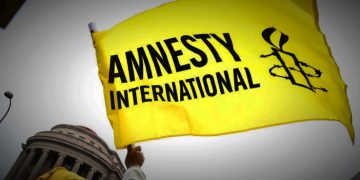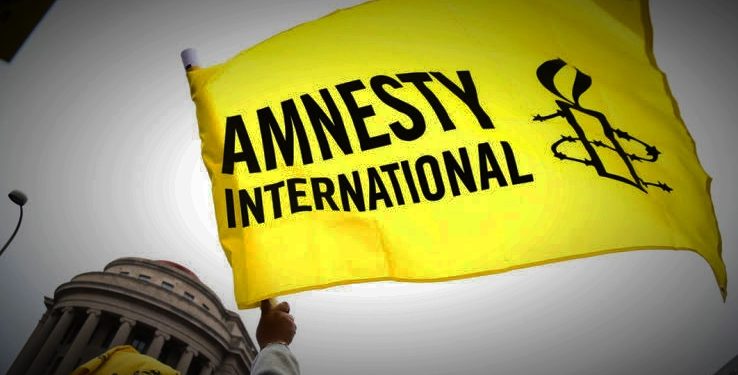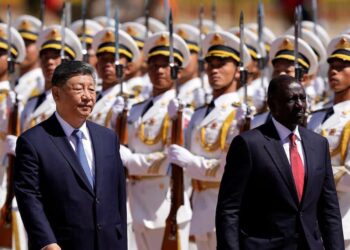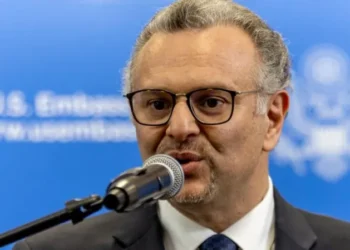By John Ikani
Amnesty International (AI) says it is not in support of any amnesty program for surrendered or repentant perpetrators of violence without recompense to affected persons or displaced communities.
The position of the global human rights movement was made known by its Nigerian head, Auwalu Rafsanjani who spoke on Monday during an interview on Channels Television’s Newsnight.
Background
Lately, there have been concerns about the massive surrender of Boko Haram fighters and their families, with stakeholders noting that it would be very difficult, if not impossible, for citizens and victims of terrorists to accept the reintegration of the repentant insurgents into the destroyed communities.
Addressing military officers and community leaders in Bama and Gwoza on the emerging situation in August, the Governor of Borno State Babagana Zulum said: “We have to choose between an endless war or to cautiously accept the surrendered terrorists which is really painful and difficult for anyone that has lost loved ones, difficult for all of us and even for the military whose colleagues have died and for volunteers.”
What Amnesty International is saying:
Rafsanjani who also heads Transparency International, said: “It is not proper to offer Amnesty to people who have destroyed, killed, brutalized communities without healing the wounds of their victims.
“One must rehabilitate communities and persons that are victims of violence before implementing a program for perpetrators of violence who have genuinely surrendered or repented.
“A reconciliatory mechanism should also be put in place to mediate between the so-called repentant perpetrators of violence and aggrieved communities
“Anything other than that will be perceived as preferential treatment as well as incentives for another round of people to engage in such violent activities.”
Amnesty International not witch-hunting Nigerian government:
Speaking on the perceived manner in which Amnesty International only calls out human rights abuse by Government, Rafsanjani clarified that the group also condemns all manner abuses, including those carried out against security agencies in the country and government institutions.
“A visit to our website and social media handles would reveal that we have been vocal against all manner of human rights abuses not just the ones perpetrated by the government but those carried out by non-state actors,” he added.
He also debunked claims that Amnesty International collects money for insidious motives.
According to him: “Money received by civil society organizations are accounted and audited. Amnesty International is not different. We have our audit report which is accessible to our donors and sponsors.”
How Amnesty, Transparency International is ensuring a more humane society even in a country facing security challenges like Nigeria:
Rafsanjani went on to note that Amnesty International, as well as Transparency International, have been helpful in the fight against insurgency in Nigeria by following abuses of rights by non-state actors, adding that Amnesty International was the first group to document Boko Haram insurgency.
“We cannot replace or play the role of government. However, we have been on the frontline in educating, sensitizing and demanding government proactiveness to tackle identified threats to the rights of Nigerians,” he noted.
While identifying lack of transparency and accountability as one of the root causes of enormous challenges confronting the nation, Rafsanjani who is also the Chairman of the Board of Transmission Monitory Group (TMG) said the group has resolved to commit itself to demanding accountability for good governance.



































